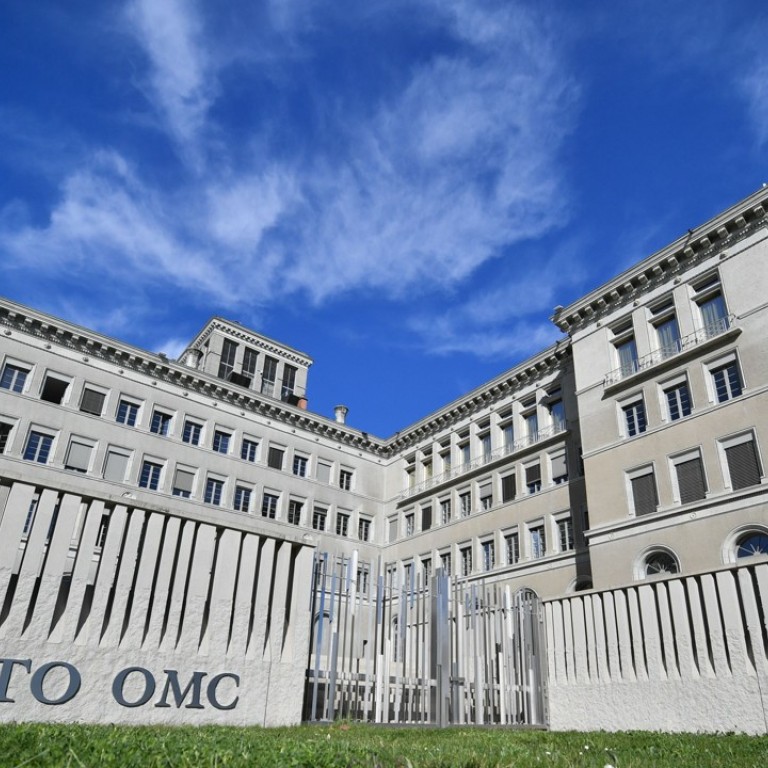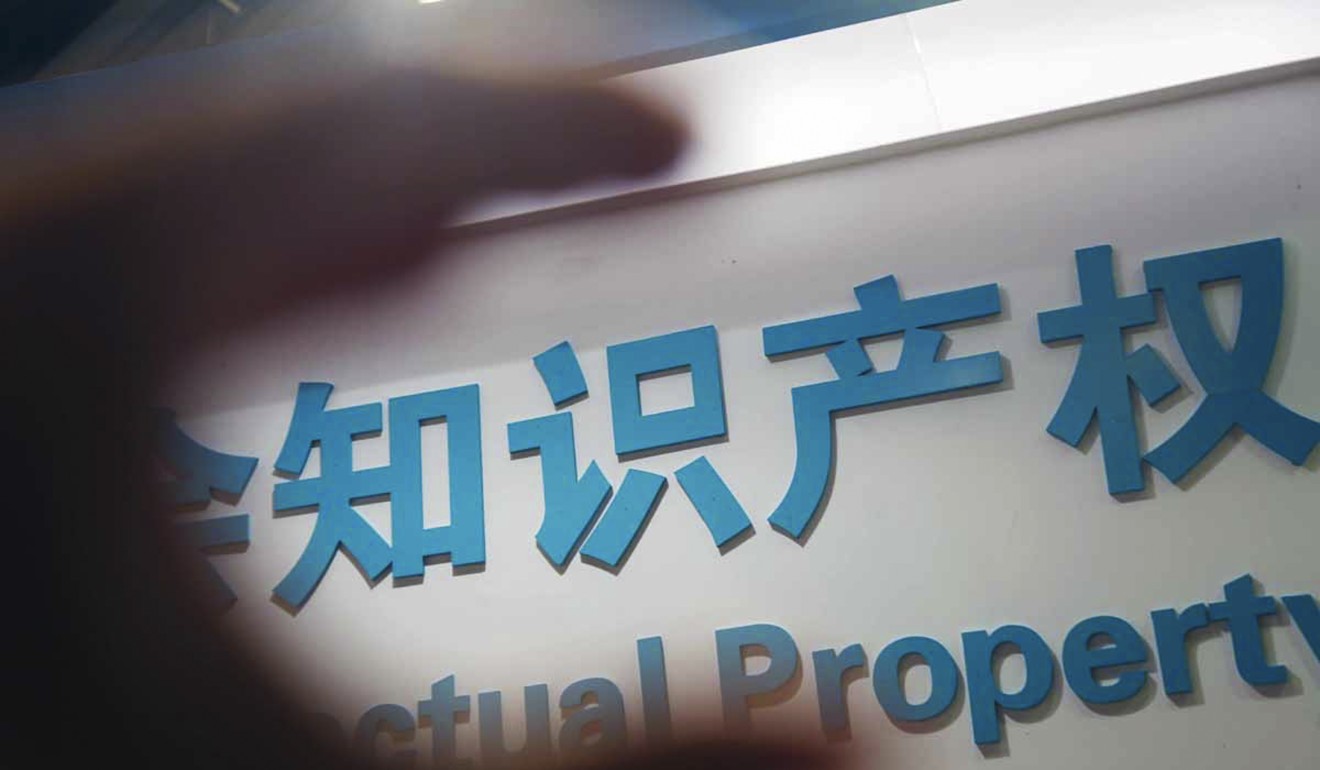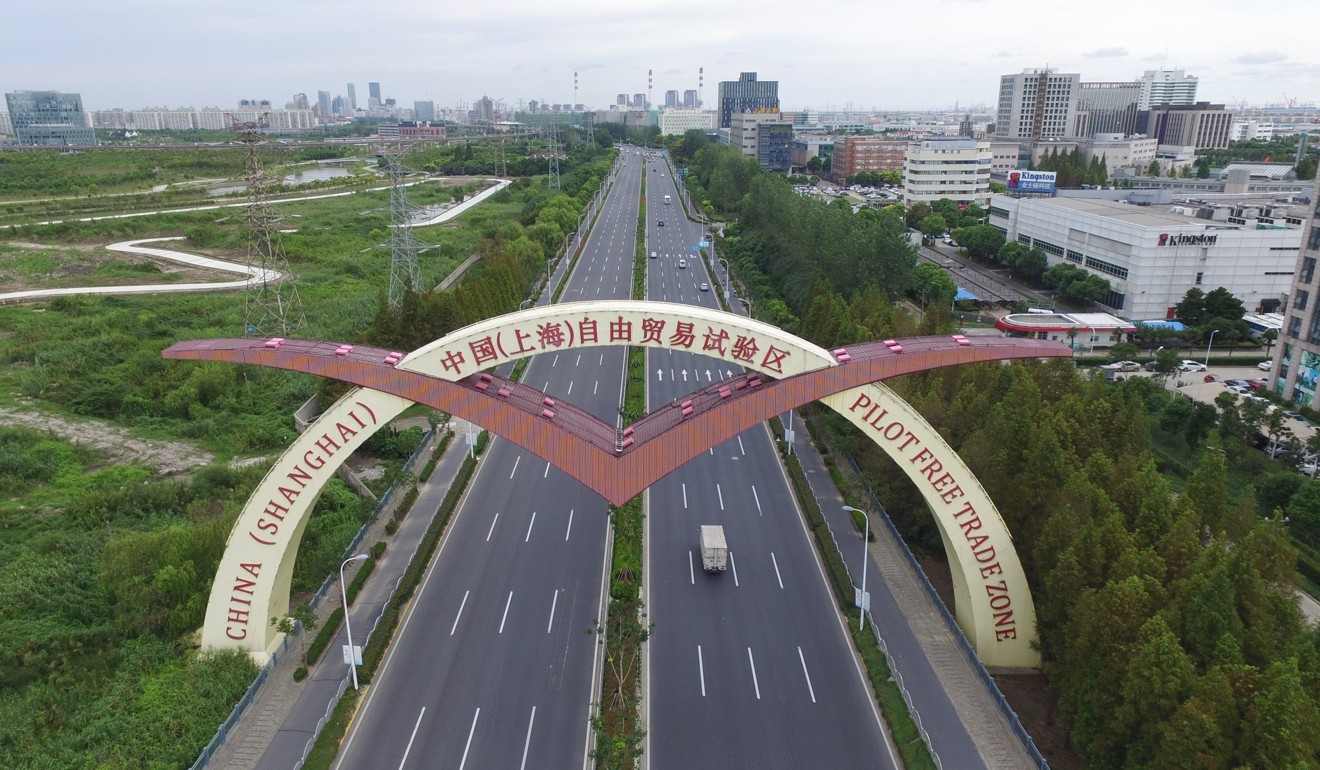
China under pressure to live up to open market pledges as US calls for ‘reckoning’ over ‘unfair’ trade policies
US raises pressure ahead of World Trade Organisation review by accusing China of causing ‘serious harm’ by failing to live up to its commitments
China is under pressure to live up to its rhetoric and fully commit itself to opening up its economy in a World Trade Organisation review after the US called for a “reckoning” over what it described as unfair trade policies.
Dennis Shea, the US ambassador to the WTO, accused China of causing “serious harm” by failing to live up to free-trade principles.
The World Trade Organisation is conducting its biennial review of China’s compliance.
Macau casinos could get caught in US-China trade war crossfire
“Given China’s very large and growing role in international trade, and the serious harm that China’s state-led, mercantilist approach to trade and investment causes to China’s trading partners, this reckoning can no longer be put off,” he said.
“It is clear, moreover, that the WTO currently does not offer all of the tools necessary to remedy this situation,” Shea told the two-yearly WTO review of China’s trade policies on Wednesday.
But China’s vice-minister of commerce Wang Shouwen said significant changes have taken place since China’s accession to the WTO in 2001, adding that the country provided market opportunities for world goods and services.
“Between 2001, when China joined the WTO, and 2017, China’s imports of goods increased at an annual average rate of 13.5 per cent, twice as high as the world average,” he said.
The biennial review is the seventh since China’s accession to the WTO.
The country is still subject to frequent criticism for allegedly unfair trade practices, such as restrictions on government procurement to state subsidies for companies.
China’s Ministry of Commerce said last week that China had received 1,600-plus questions to be answered in the review from 33 WTO members, covering tariff cuts, market access expansion, state firm reform, subsidies, overcapacity and intellectual property protection.
American families set to pay as US targets Chinese consumer goods
Observers have said that it could help cease tensions with the US and European Union by speeding up talks to allow foreign firms to offer services to local authorities, improve the transparency of its industrial subsidies policy and improve intellectual property protection.
Beijing is aware of the need to ensure a level playing field for all companies, but officials are divided on how to carry out the reforms, according to Chinese trade advisers.
“The glass is half full on China’s WTO compliance record, and there is still much work ahead for Beijing to meet its commitments”, said James Zimmerman, a partner in the Beijing office of law firm Perkins Coie.

China is a big beneficiary of the current multilateral trade system based around the WTO. In the 17 years since it joined the body in 2001, China has become the world’s second largest economy and the top trading partner for over 120 countries.
However, as its economic power rises, foreign governments and businesses have become increasingly frustrated that China is continuing to depict itself as a developing country to justify its use of industrial subsidies, import barriers and market controls to protect domestic industries.
The discontent escalated further when US President Donald Trump lashed out at Beijing’s “economic aggression” and unfair trade practices and threatened to withdraw the US from the WTO, which he accuses of favouring China at America’s expense.
As trade war hits, China’s focus should be on steadying growth
Scott Kennedy, a senior fellow with the Centre of Strategy and International Studies, a think tank based in Washington, said China had to do more to adhere to WTO commitments.
“It [China] currently is falling far short of the mark, and this is one of the reasons for the flagging legitimacy of the WTO in the eyes of the Trump administration and others. China hails the multilateral trading order, but the system is not holding China to account firmly enough,” he said.
The EU Chamber of Commerce in China has criticised Beijing for inadequate protections of intellectual property and urged it to fulfil one of its WTO commitments by opening the US$400 billion government procurement market to other members.
Over the past decade, China has submitted six sets of proposals, the latest in 2014, but foreign business groups said they fell short of expectations and urged Beijing to add more local governments and state-owned enterprises to the procurement list to speed up the process.

Kennedy said China’s performance in terms of WTO commitment compliance and trade cooperation “has plateaued and in some ways regressed”, but its efforts to pursue its own interests “have continued apace”.
“Although China’s contribution to international trade and investment has skyrocketed over the last decade, the simultaneous aggressive expansion of China, Inc. (state champions) and the industrial policy machine has created distortions in its domestic economy and hence distorted the pattern of global trade and investment,” Kennedy said.
“If the system continues to treat China with kid gloves, the system essentially will be changed from the inside out into one that no longer takes seriously its mission to reduce beyond-the-border non-tariff barriers”.
A large number of the conflicts between China, the US and the EU have centred on fair competition with the role of state-owned enterprises and forced technology transfers among the main sources of contention.
The US has also accused China of failing to completely disclose to the WTO its subsidies to industries, state-owned firms and exporters.
It said in its annual report on China’s WTO compliance in 2017 that the body’s rules are not sufficient to constrain China’s “market-distorting behaviour”.
How China plans to push back against Donald Trump in ‘economic cold war’
“The notion that our problems with China can be solved by bringing more cases at the WTO alone is naive at best, and at worst it distracts policymakers from facing the gravity of the challenge presented by China’s non-market policies,” the report said.
Beijing’s major Western trade partners have declined to grant China market economy status, which leaves Chinese products at risk of higher punitive tariffs.
A Chinese government adviser, who is familiar with the international trade talks, said China needed to do more to respect WTO principles such as fairness and transparency.
“China has not opened up enough yet and it does not take complaints by foreign companies very seriously, but the US is too impatient,” the adviser said.
Could Trump’s trade war turn into a third world war?
Beijing has been criticised for stalling on plans to liberalise state firms reinforcing the Communist Party’s control over them.
“There is suspicion in China about the West-style market economy after the global financial crisis in 2008. China is more resistant against external pressure while it still lacks a consensus on whether it should rely on state power or the market to make the economy more innovative,” the adviser said.
“Inside the government there are still conflicts on how to address state subsidies for industry and a heated debate on how to push forward the reform of state-owned enterprises,” said another government trade adviser.
The WTO has gone through several rounds of talks to improve its rules and address issues such as tariffs or its treatment of developing nations.
“There are voices overseas that a ‘China Round’ of WTO talks is needed. To some extent it makes sense, but China is not ready for that, nor does it have the capacity to lead the making of new rules under WTO”, he said.

